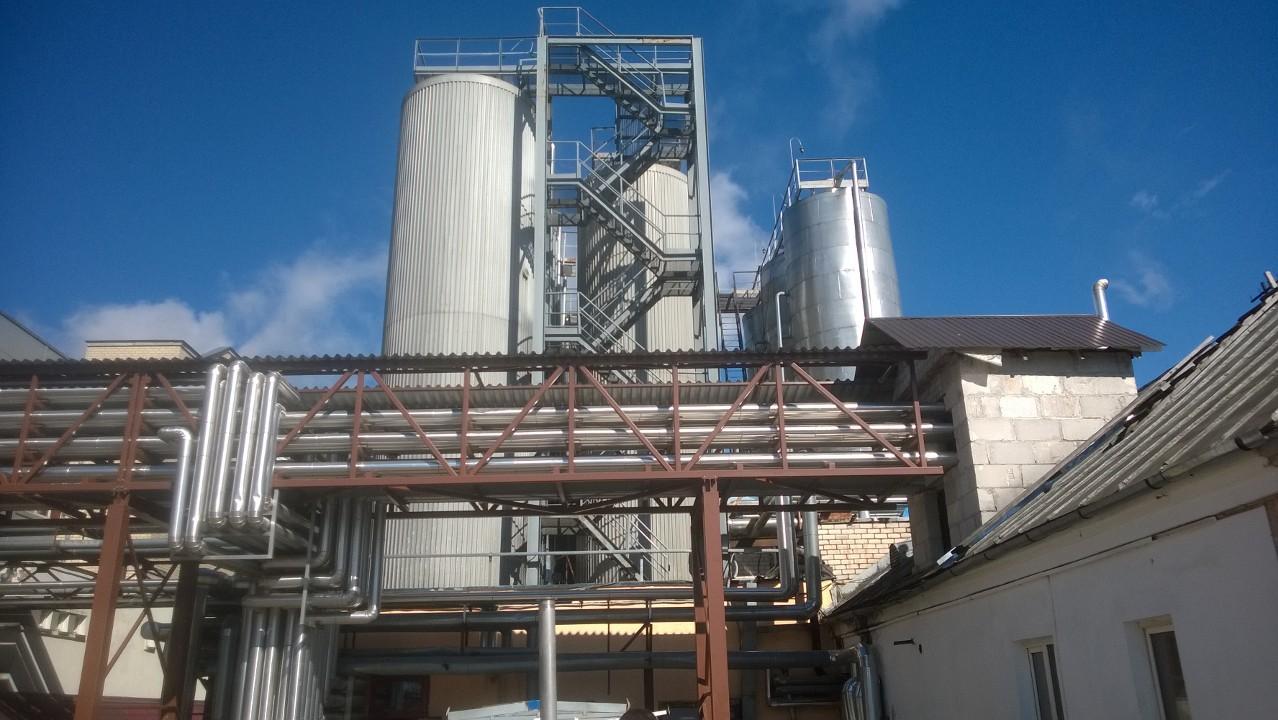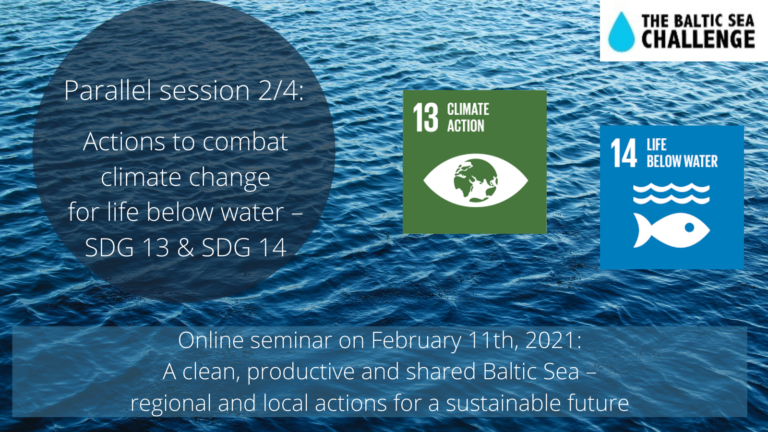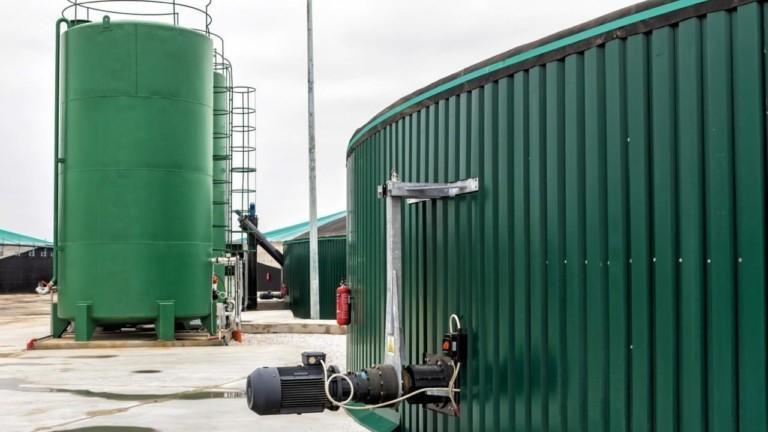The John Nurminen Foundation, biogas producers, and environmental authorities from Finland and Latvia will embark on cooperation to promote the sustainability of climate-friendly biogas from a water protection perspective. The Sustainable Biogas project, now being launched, will work together with the biogas sector and various stakeholders to create methods that improve the way nutrient flows are controlled.
The John Nurminen Foundation will implement the Sustainable Biogas project in cooperation with the ELY Centre for Southwest Finland, the Finnish Biocycle and Biogas Association, Latvian State Environmental Services, and the Latvian Biogas Association, and with funding from the EU Interreg Central Baltic programme.
The project consortium will delve into a challenge that has so far received little attention: climate-friendly biogas production involves a risk of eutrophicating nutrient discharges. The risk can be reduced by paying attention to digestate recycling and final disposal, and to the treatment of wastewaters from production. With these measures, it is possible to minimise the volume of nutrients that enters the watercourses and the Baltic Sea.
Particular focus on Southwest Finland, Åland, and the Zemgale region
The project will reduce nutrient discharges from biogas production to watercourses by increasing awareness of the nutrients created in biogas production, and by creating new tools and procedures that improve nutrient flow management for the use of biogas plants and the authorities. Project results can be utilised e.g. in the planning phase and when environmental permits for biogas plants are awarded. Moreover, the project will promote the sustainable and safe utilisation of nutrient-rich digestates, created in biogas production, as recycled fertilizers.
Measures will be implemented in three areas: Southwest Finland, the Zemgale region in Latvia, and in Åland. In addition to the biogas production in the regions, all three areas have a nutrient surplus, due e.g. to intensive livestock production; at the same time, nutrient levels on cultivated fields are high, further increasing the risk of nutrient runoff to watercourses.
“Southwest Finland is the food producing centre of Finland with intense farming including pig and poultry production. This offers good opportunities for biogas production but involves heavy pressure to natural waters. In the project, we are collaborating to develop tools and practices to minimize the nutrient load from biogas production and spreading of digestates”, says Senior Advisor Pekka Paavilainen from ELY Centre for Southwest Finland.
“The Zemgale region is the most important agricultural area in Latvia. It has the largest concentration of biogas plants and is at the same time designated as a nitrate vulnerable zone due to a large number of nationally important watercourses. Since 2011 when Latvian government launched a subsidy system for private biogas operators, issues related to nutrient management in biogas production have become increasingly topical and challenging in Latvia. Due to the state support, there has been a rapid expansion of biogas production, at the same time lacking regulation and control on the biogas plants and digestates. Therefore, large amounts of reject waters and solid digestates were and are still being spread to agricultural lands surrounding biogas facilities, which has led to increasing nutrient leakages to water courses”, says project manager Laura Taube from Latvian State Environmental Services.
The goal is to improve nutrient management, and to reduce discharges from the 30 existing biogas plants, and from various plants that are still being planned. Moreover, the results will be utilised in the entire Baltic Sea area in order to reduce nutrient discharges from biogas production.
The project’s deliverables will include instructions for plants and the authorities on the treatment of digestate and reject waters, and three regional plans which will improve the nutrient balance in Southwest Finland, Zemgale, and Åland. The project will also use Latvian and Finnish expertise to build a quality system for recycled fertilizers in Latvia, and to further develop the quality system that already exists in Finland. The project will also draw up plans for further opportunities to use wastewater sludge and the digestates produced from it, both in Finland and in Latvia.
The project will be implemented during the next two years, and its results will be available in the summer of 2022.
Finland and Latvia show the way for the entire Baltic Sea region
“Biogas production is an important and promising energy source to mitigate climate change. We wanted to launch a project to improve the sustainability of the sector from a water protection perspective in collaboration with the authorities and biogas producers. During the past ten years, the challenges of nutrient management in biogas production have been evident in our work in the Baltic Sea region, both at wastewater treatment plants and in agriculture. In 2017-2018, the Foundation commissioned a Baltic Sea wide risk assessment on discharges from biogas production to watercourses; the results indicated that the area as a whole shares the same challenges”, says Marjukka Porvari, Director of the Clean Baltic Sea Projects of the John Nurminen Foundation.
“In Latvia, implementation of the project Sustainable Biogas will be the first step towards establishing a quality system for digestate. The Latvian Biogas Association looks forward to the project results as they will help to improve the common understanding of the safe usage of digestates, nutrient management and recycling, as well the impact of digestates on the environment if applied incorrectly”, says Andis Kārkliņš, Chairman of the Board of the Latvian Biogas Association.
“A Finnish quality scheme for recycled nutrients and fertilizers was developed together with stakeholders and published in March 2020. In the project Sustainable Biogas, it will be further developed. Together with other incentives and instruments, the aim is to set up markets for recycled nutrients and fertilizers”, says Executive Director Anna Virolainen-Hynnä from the Finnish Biocycle and Biogas Association.

Welcome to the webinar
The project’s kick-off webinar (in Finnish) will be on Friday, 11 September from 8:30 am to 10:30 am. The webinar will explore the impact of biogas production on watercourses, present ideas on how to minimise nutrient discharges from biogas, and hear what stakeholders have to say on the topic. Join us online!
More information:
Marjukka Porvari
Director, Clean Baltic Sea projects
John Nurminen Foundation
Tel. +358 41 5491 535
marjukka.porvari (at) jnfoundation.fi
John Nurminen Foundation – Baltic Sea protection and marine culture
Founded in 1992, the purpose of the John Nurminen Foundation is to save the Baltic Sea and its heritage for future generations. The Foundation has been awarded for its work as a communicator of information and producer of marine content. The goal of the Foundation’s Clean Baltic Sea projects is to improve the condition of the Baltic Sea with tangible measures that will reduce the load and environmental risks directed towards the sea. The work is steered by measurable results and impact. www.johnnurmisensaatio.fi
Sustainable Biogas
Climate-friendly biogas may lead to nutrients entering the watercourses if the treatment of digestates and wastewater from biogas plants is not carefully planned. The goal of the Sustainable Biogas project, funded by the EU’s Interreg Central Baltic programme, is to promote the sustainability of biogas from a water protection perspective. The John Nurminen Foundation will implement the project in cooperation with the ELY Centre for Southwest Finland, the Finnish Biocycle and Biogas Association, Latvian State Environmental Services, and the Latvian Biogas Association.
This press release was published by John Nurminen Foundation on 17.06.2020.



